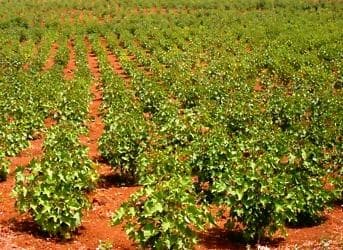In the fervent race to bring cost-effective biofuels to market, the three leading contenders are algae, Camelina and Jatropha.
Jatropha’s promoters have been the fastest off the block, as substantial technological problems remain with algae, and Camelina’s per acre yield of biofuel is less than Jatropha’s.
But now, another Third World project to cultivate Jatropha has crashed and burned.
Jatropha, a fast-growing, drought-resistant tree native to Latin America, was introduced to Zimbabwe in the 1940s. It is found in many parts of the country, with concentrations in the North Eastern districts of Mutoko, Wedza, Chiweshe, Mudzi, Nynaga North, Guruve and Binga.
Beginning in 2005, Zimbabwe’s government began to bank heavily on Jatropha, which grows naturally in all regions of the country and is adaptable even in drier regions, making it easier to grow in low rainfall areas. Prodding the government was its response to the energy crisis as well as the global move aimed at limiting local carbon emission in line with Montreal Protocol on greenhouse gases reduction agreements. The introduction of the Jatropha plants coupled by a ready market and perceived benefits saw a Jatropha euphoria grip Zimbabwe, added by the government’s deliberate effort to entice communal and resettled farmers to diversify into growing Jatropha to produce feedstock for bio-diesel production. In 2009 studies carried out by Environment Africa together with WWF Zimbabwe showed that it is highly economic to process the Jatropha seed at local level.
But the results are now in, and the efforts can only be labelled a massive failure. One embittered farmer, Edward Cheuriri of Meza village, stated that the government failed to own up to its promises and support Jatropha programs, telling journalists, "We were convinced that Jatropha plant might be the silver bullet to deal with the increase demand of fuel in Zimbabwe and to economically empower people in the area. Three years down the line the government has not provided the much-needed resources to ensure people can take care of the plantations. It has not provided us with fencing material and a marketing strategy that would ensure the growth of the project. In fact, the few soap-making projects and sporadic buying trips by Finealt Engineering have failed to spur the development of the Jatropha program and the participation of community groups in bio-fuels production in Zimbabwe."
According to government representatives, speaking on condition of anonymity, a Jatropha processing plant established in 2007 in Mount Hampden near the capital in a Zimbabwean and North Korean joint venture is now a white elephant due to a lack of Jatropha seeds feedstock. During 2005-2007 Zimbabwe’s central bank invested nearly $12 million for the Mount Hampden refinery, launched in a blaze of publicity by President Robert Mugabe.
Zimbabwe’s Jatropha meltdown was caused by a perfect storm of circumstances.
First, despite Jatropha’s promoters, the plant in fact needs both much more cultivation and water than its proponents initially claimed.
Second and as important is Zimbabwe’s grotesquely inefficient and corrupt government infrastructure. Mugabe’s government promoted the plant both to reduce the country’s imported energy bills and as a means to empower the country’s ramshackle agrarian base, but then failed to follow through with the necessary funding and expertise. In hindsight, the program’s collapse was inevitable.
Nor is Zimbabwe’s experience unique, as in the past several years India’s farmers have lost more than $5 billion in similar Jatropha ventures.
But Jatropha may yet strike roots in the Third World. Since 2007 China has planted Jatropha in Sichuan, Yunnan and Guizhou provinces as well as the Guangxi Zhuang autonomous region. Yunnan currently has 33,000 hectares under cultivation and the Xinhua news agency reports that the country will have 13 million hectares of biofuel plantations by 2020 that will produce 6 million tons of biodiesel annually.
ADVERTISEMENT
The East is red – and perhaps oily – but not Africa, at least at the moment.
By. John C.K. Daly of Oilprice.com



















The first doubt, should have been raised when two Enviro groups suggested this could be economically commercial..
http://blogs.wsj.com/environmentalcapital/2009/07/17/bp-gives-up-on-jatropha-for-biofuel/